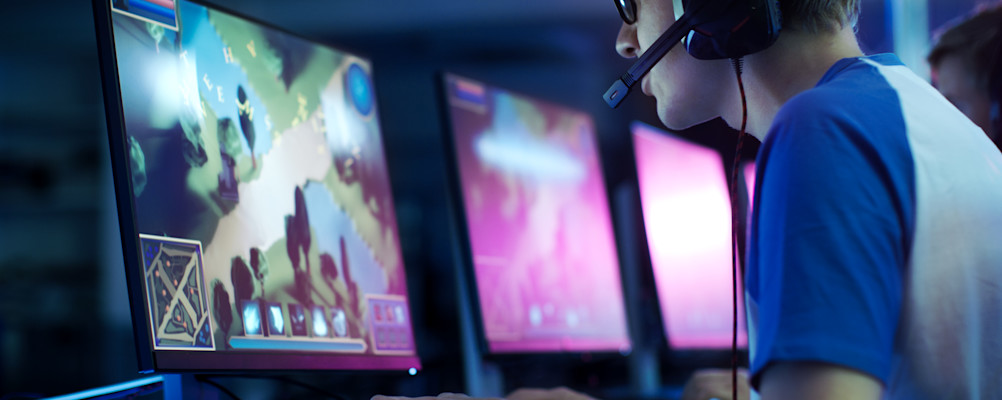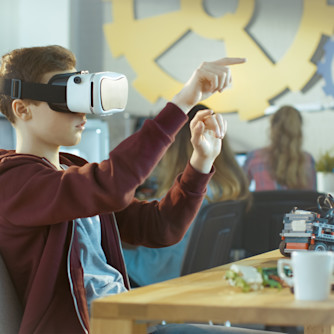Field Lab | Game research
DGA Gaming Field lab
The gaming industry worldwide is growing enormously, and games and their innovative technologies often act as a catalyst for innovation in a range of fields of research. To ensure the Dutch gaming industry also profits from this and is involved, the DGA Gaming Field Lab wants to strengthen the connection between knowledge institutions and gaming companies, so companies are more open to research, and researchers take into account the practical questions and problems a bit more.
With that goal in mind, the Gaming Field lab is organising meetings aimed at networking, matchmaking and knowledge sharing, especially for SMEs, and will ensure (partial) funding of research projects in which knowledge institutions work with the industry. The field lab also shows joint research projects and innovative concepts that are relevant for a range of applications, like in healthcare and education. Within the game research, the field lab is specifically focused on the theme ‘reusable game Artificial Intelligence (AI). Game AI is aimed at using AI for game development and gaming behavior.
The focus on game AI fits within an international trend. Not only have developments in gaming and AI been closely linked since the first chess computer (1950), the European Commission has recently made AI a top priority in reaction to large investments by Singapore, Korea, Canada, the US, China and others. The reuse of software is seen as a big step towards harmonisation, standardisation and efficiency improvement internationally as well – because if it can’t be reused, it doesn’t need to be developed. Reuse also encourages sharing of knowledge and cooperation between parties. The results of the field lab will therefore directly benefit the sector as a whole.
The projects
DGA Gaming Fieldlab has issued a call for research proposals which has resulted in the funding of five projects. Each of these projects connects a games company to an educational institution in a consortium to conduct research. These consortiums will work together for a duration of two years and will present their progress at regular intervals.
DGA Gaming Fieldlab is a collaboration between Dutch Games Association and CLICKNL that supports the Dutch games industry by accommodating research-industry collaborations. It has acquired funds for joint research into advanced game technologies and associated methodologies that aim to bring game design and development to the next level. To strengthen the game development community the DGA Gaming Fieldlab arranges research-industry meetings for discussion and knowledge sharing. Furthermore, the DGA Gaming Fieldlab offers guidance and advice regarding game research and takes up a matchmaking role between game professionals and researchers.







